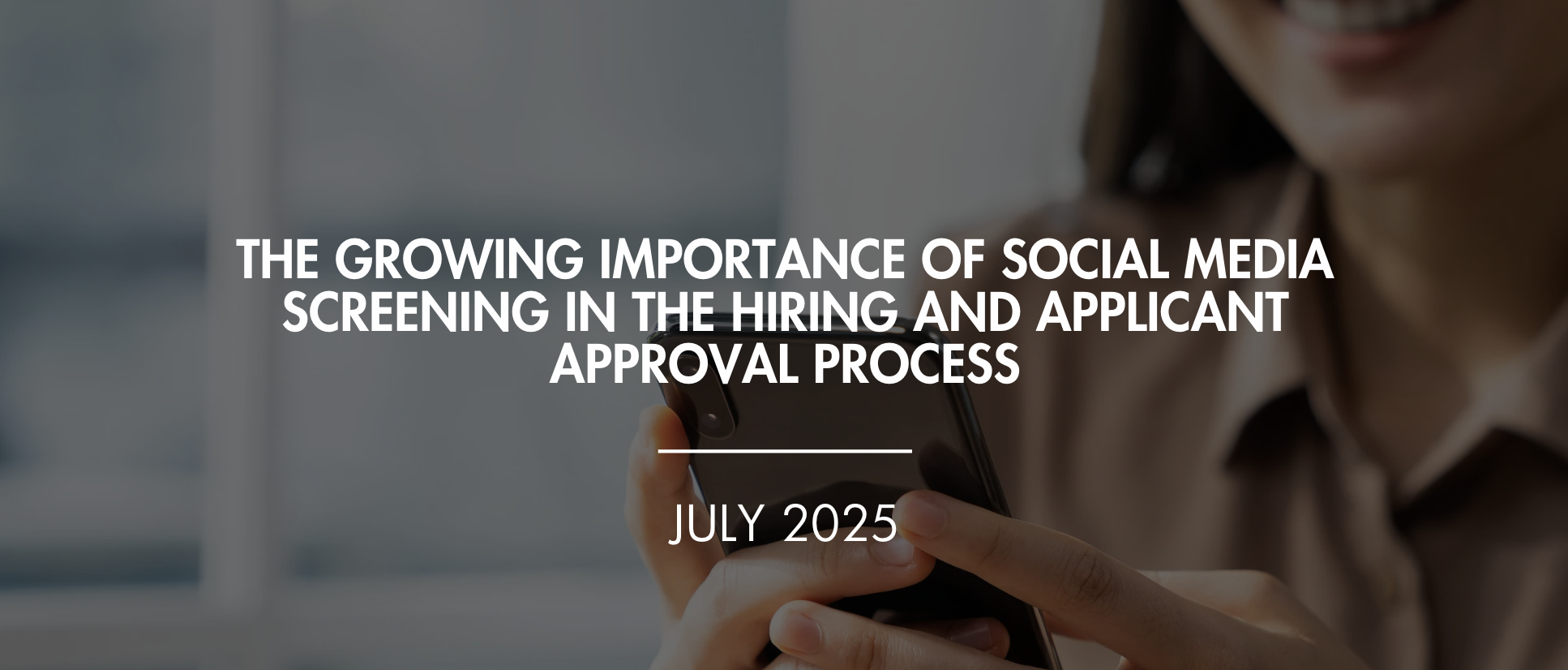In today’s digital world, nearly 70% of the U.S. adult population—over 239 million people—are active on social media, regularly using platforms like Facebook, X (formerly Twitter), Instagram, and TikTok. As social media usage continues to grow, so does its relevance in the hiring process. With so much personal content online, social media screening has become an increasingly valuable tool for employers looking to make informed hiring decisions—and for other organizations seeking to mitigate risk during applicant approval processes, whether for membership, franchisees, board of directors, or other business needs.
As professional consultants with decades of experience in consumer reporting, we’ve seen how social media screening has evolved into a powerful supplement to traditional background checks. This isn’t about invading privacy—it’s about identifying publicly available, legally reportable content that may indicate risk to your organization.
More organizations are turning to social media screening as a critical tool to assess a candidate’s behavior and character beyond the resume, application, and interview. This form of screening can offer valuable insights—but it must be done carefully and legally.
What Social Media Screening Can Reveal
Unlike traditional background checks, social media screening can provide context around a candidate’s public persona—especially regarding behavioral patterns or judgment concerns that may not surface elsewhere. Professionally conducted screenings may identify:
-
Violent or threatening behavior
-
Hate speech or discriminatory comments
-
Sexually explicit or suggestive content
-
Profanity and offensive gestures
-
References to drug or alcohol misuse
-
Signs of self-harm or concerning behavior
-
Disparaging remarks about former employers or coworkers
Identifying red flags early in the hiring or applicant approval process can help employers and other business entities mitigate the risk of a bad hire—or approving an applicant whose online behavior could be harmful to your brand, financially or reputationally.
Legal and Ethical Considerations
While social media screening is useful, it is also legally sensitive. Improperly conducted searches can expose decision-makers to risks under the Americans with Disabilities Act (ADA), Equal Employment Opportunity Commission (EEOC) guidelines, and various state privacy laws.
For example, viewing content related to protected characteristics—such as religion, sexual orientation, or medical conditions—could introduce unconscious bias or trigger claims of discriminatory practices if not handled properly.
To stay compliant, hiring managers must ensure:
-
Only publicly available, position-relevant content is considered
-
Protected class information is excluded from the review
-
The process complies with the Fair Credit Reporting Act (FCRA) if conducted through a third party
-
Applicants are given proper disclosure and consent, and adverse action procedures are followed if decisions are made based on findings
Why Professional Screening Matters
Given the legal pitfalls and sheer volume of online content, relying on informal internal searches (like a quick scroll through someone’s profile) is risky. Using a trusted third-party reliable background screening provider ensures:
-
Only legally reportable content is included
-
The process is consistent and unbiased across candidates
-
Privacy and compliance standards are upheld
-
Your organization is shielded from directly viewing protected class information
A Key Part of a Broader Screening Strategy
Social media screening is not a silver bullet; however, it is a powerful complement to traditional background checks, reference verifications, and interviews. When incorporated into a comprehensive hiring and/or applicant approval process, it provides another layer of insight to help employers and other organizations make informed, responsible decisions about the employees, volunteers, members, franchisees, board of directors or other applicant positions that any business may need.
As online presence becomes more closely tied to real-world behavior, social media screening is not just relevant—it has become essential.
Posted by: Rudy Troisi, L.P.I., Founder, CEO, Reliable Background Screening and Dr. Alan Lasky, SVP Client Success & Partnerships.
This content is for informational purposes only and not legal advice or binding case law. Consult qualified legal counsel for assistance.
Copyright © 2025, Reliable Background Screening, a Division of Marcett, Inc. All rights reserved.


